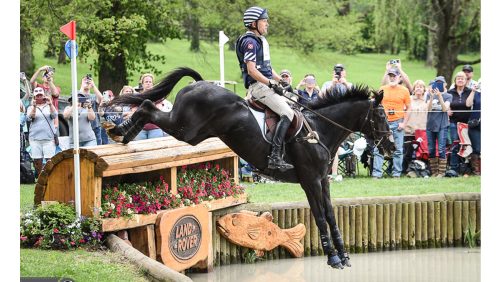The release of the Summary of Main Decisions from the Federation Equestre Internationale’s general assembly on Nov. 8 created quite a stir, especially in the eventing, combined driving and dressage communities. The Chronicle’s Eventing forum hosted a thread with lengthy discussion about one particular change to the General Regulations.
In a section headed “Series and events not affiliated to the FEI,” the regulations stipulated that:
“The number of series per discipline and per category will be limited in order to have a well structured calendar, to avoid date clashes and to manage athlete horse power properly to protect the welfare of the horse. As a related point, the number of competitions that count for a series will be limited in order to guarantee an open market and to avoid closed shops. Athletes and officials will no longer be permitted to participate in both sanctioned and unsanctioned events. If an athlete, horse or an FEI official participates in a non-sanctioned event, such person or horse will be prohibited from participating in any sanctioned events, both international and national, for a period of six months thereafter. An unsanctioned event is an event that is not on the FEI calendar and is not authorized by a National Federation.”
The face-value interpretation of the rule indicates that FEI-level riders are not allowed to compete at local, unrecognized schooling shows or any show series that’s not affiliated with the national federation. (Some examples might be an unrecognized horse trials or a schooling show, any competition not affiliated with the U.S. Equestrian Federation.)
On Nov. 20, Lisa Lazarus, the FEI’s General Counsel, released a clarification of the ruling which seems to alleviate the worry that it would prevent FEI-level riders from competing in local schooling shows. It further defines the “unsanctioned events” as those that are on an international or national scale rather than local. The clarification also seems to put the onus on the national federation to decide what might constitute an offense of the rule.
Lazarus’ statement reads:
“The new rule on participation in unsanctioned events applies only to events and/or competitions that are not in the FEI calendar (i.e. international events not approved by the FEI) and national events that are not authorized by the National Federation.
ADVERTISEMENT
“Unsanctioned events are not subject to FEI regulations, and their organizers and participants are not accountable to the FEI for compliance with these regulations. As a result, the FEI has no way of safeguarding the welfare of horses and athletes participating in such events, or of protecting the integrity of the events. The same may be true at the national level if a national event is conducted outside national rules and with the express objection of the National Federation.
“The newly introduced rule states that an athlete, horse or official will be ineligible to participate in a sanctioned international or national event if they have participated in an unsanctioned event in the previous six months.
“Local events do not come within the scope of this rule so long as the National Federation does not expressly object to them. The FEI will rely on the National Federations to bring any national or local events that they have concerns about to the FEI’s attention.”
John Madden, the chair of the FEI Jumping Committee, elaborated on the clarification. “It’s not to stop [grand prix show jumper] Beezie Madden from doing charity things or a four-star event rider from taking a green horse to a local schooling event or a dressage rider from going a lower level event,” Madden said. “What the intent of that is to prevent someone starting a series in which they make their own rules and in a sense force riders to do things within that series that are contrary to FEI rules.
“If you have an FEI-sanctioned series, that means that the people running the series are working together with the FEI and are abiding by the rules and regulations, such as horse welfare and medication control, that are important. If you had a renegade series that was trying to impose things upon riders that were contrary to the good sporting conduct that the FEI supports, that would be a problem,” he continued.














